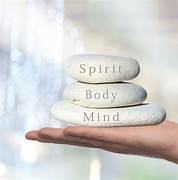
In the quest for optimal health and productivity, a growing number of people are turning to biohacking—a self-empowered approach to improving body and mind through science, technology, and lifestyle experimentation. Among the most exciting frontiers in biohacking is brain optimization. By understanding how the brain functions and applying targeted strategies, anyone can enhance mental clarity, boost energy, and unlock their full potential.
What is Brain Biohacking?
Brain biohacking is the practice of using techniques, tools, and substances to improve cognitive function, emotional balance, and overall brain health. It involves everything from optimizing sleep and nutrition to using nootropics, neurotechnology, and mindfulness practices. The goal is simple: to think sharper, feel better, and perform at your highest level—mentally and physically.
1. Nutrition for Cognitive Power
Food is fuel for the brain. A brain-boosting diet focuses on whole, nutrient-dense foods that support neural function. Key nutrients include:
- Omega-3 fatty acids (found in salmon, flaxseeds, and walnuts) to enhance memory and mood.
- Antioxidants (from berries, dark chocolate, and green tea) to protect brain cells from damage.
- B vitamins (in leafy greens, eggs, and legumes) for energy and neurotransmitter support.
- Intermittent fasting can also be a biohack, encouraging cellular repair and mental clarity.
2. Nootropics: Smart Supplements for Smarter Thinking
Nootropics are substances that may improve brain performance. While some are natural (like caffeine and L-theanine from green tea), others are synthetic. Popular nootropics include:
- Rhodiola Rosea – A natural herb that reduces mental fatigue.
- Lion’s Mane Mushroom – Supports nerve growth and memory enhancement.
- L-Theanine + Caffeine – A combination known to improve focus without the jitters.
- Creatine – Not just for muscles; it supports brain energy metabolism too.
Always consult a healthcare professional before starting any nootropic regimen.
3. Sleep Optimization
Sleep is the ultimate brain biohack. During deep sleep, the brain consolidates memories, clears out toxins, and resets for the next day. To enhance sleep quality:
- Stick to a regular sleep schedule.
- Avoid screens and blue light before bed.
- Use tools like weighted blankets, sleep trackers, or white noise machines.
- Consider supplements like magnesium or melatonin if needed.
4. Neurotechnology and Wearables
Tech-savvy biohackers use devices like EEG headsets, neurofeedback apps, and brainwave entrainment tools to monitor and influence brain activity. Tools like the Muse headband or Apollo Neuro device can help users achieve meditative states or regulate stress more effectively.
5. Mindfulness and Meditation
Mental clarity often comes not from stimulation, but from stillness. Daily mindfulness practices, including meditation, breathwork, and cold exposure (like ice baths), can strengthen focus, reduce anxiety, and regulate mood.
Conclusion
Biohacking your brain isn’t about shortcuts—it’s about informed experimentation and intentional living. By combining science-backed strategies with mindful self-awareness, you can unlock peak mental and physical performance. Whether you’re an entrepreneur, athlete, student, or lifelong learner, brain biohacking offers powerful tools to help you thrive in every area of life.








